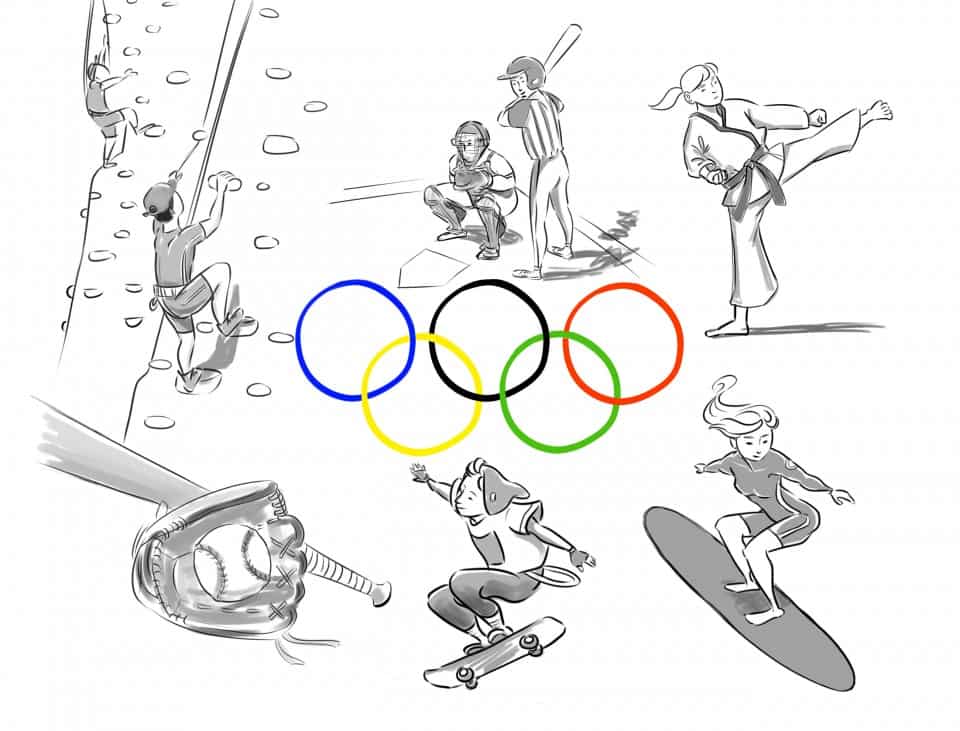With the thirty-first Summer Olympic Games just under a year away, the International Olympic Committee (IOC) will review the addition of five new sports to the Tokyo 2020 roster.
The five sports, which were proposed by the 2020 organizing committee, include baseball/softball, karate, skateboarding, surfing, and sports climbing.
If added, the five sports will add 18 new events to the 2020 games — as under the umbrella of each sport, come a multitude of different competitions. Skateboarding, for instance, would consist of park and street competitions, which would then be subdivided by gender — bringing the total number of events to four. –
Fujio Mitarai, chairperson of the selection panel and the honorary president of the Tokyo Organizing Committee, revealed that there are two main factors of consideration for the inclusion of any of the five sports: international appeal, and a sport’s popularity amongst youth. “Does the sport have the support of the younger generation and how big is the population of the sport worldwide?” said Mitarai regarding the selection criteria.
Skateboarding, surfing, karate, and baseball/softball all have an added advantage because, apart from being popular with young people, these sports are practiced throughout Japan, ensuring that world-class facilities would still be used after the conclusion of the games.
Bowling, squash, and the Chinese martial art known as wushu were also up for contention, but failed to make the IOC’s short list despite the fact the IOC is considering an increasing number of non-traditional sports.
When imagining the summer Olympics, the first thing that comes to mind is a large colosseum showcasing the world’s fastest runners, highest jumpers, and farthest throwers. Images of Usain Bolt winning the 100 meter dash, or Michael Phelps and his 18 Olympic golds are the memories we remember when preparing for another Olympic year.
However, the diversity of the Olympics has grown to such a magnitude that the IOC has to keep up — the better they can relate to a bigger audience, the more people will engage with the Olympics and watch the games.
Not only will the inclusion of non-traditional sports benefit the IOC, but the games will also be more meaningful to the host community, in this instance with the addition of baseball and karate — both of which are very popular Japan. After all, one of the main reasons for hosting sports mega-events like the Olympics — or, as Torontonians know very well, the Pan Am Games — is to inspire the average person to become more physically active.
But there are factors other than organizational support and public appeal that can determine whether a sport is included or not. Baseball, for example, has a major conflict in North America between the MLB and IOC. The MLB will not change its scheduling to accommodate the Olympics, therefore, many of the world’s best players are automatically out of the competition.
28 sports are already on the Tokyo Olympic roster, and the IOC’s 2020 recommendations encourage the host cities to add sports that are popular in their area. Now the biggest challenge is to expand the criteria based on which sports get to compete for Olympic medals.
The IOC will make a final decision on which sports will be added at the Rio de Janeiro Olympics in August 2016.


